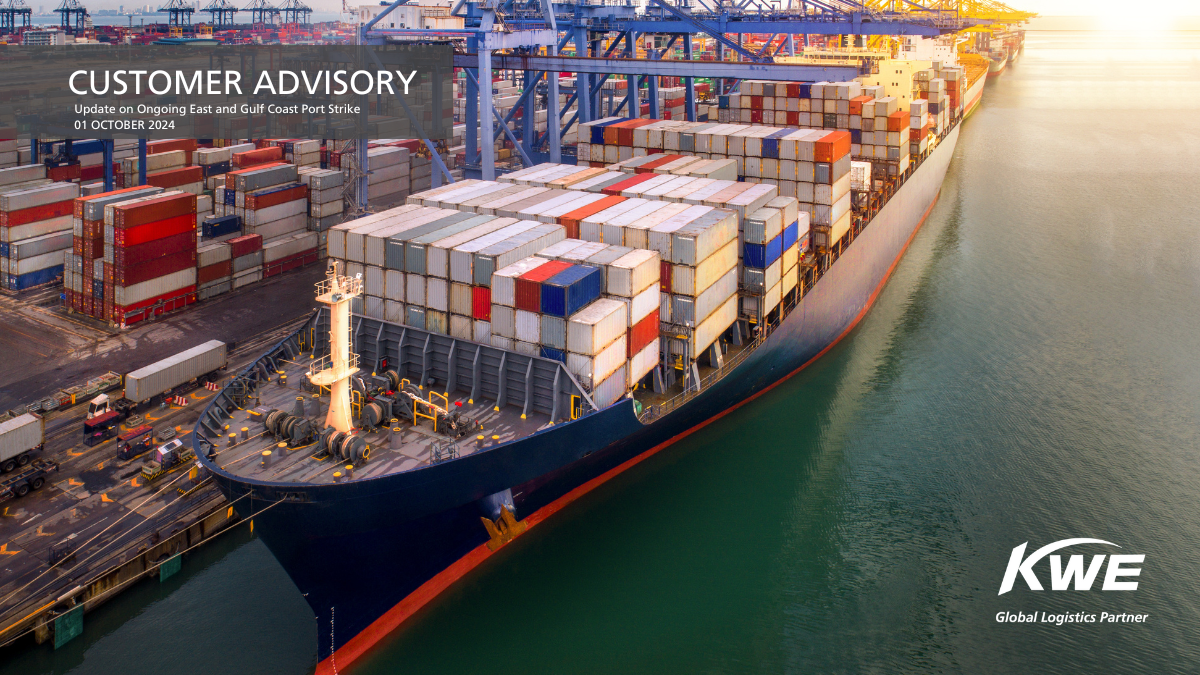Quote
Customer Advisory: Dockworkers at U.S. East and Gulf Coast Ports Go on Strike

At 12:01 a.m. on October 1, 2024, nearly 50,000 longshore workers from the International Longshoremen’s Association (ILA) began an indefinite strike at 14 major ports, halting imports and exports from Maine to Texas. This marks the first shutdown in nearly 50 years, with significant impacts on various goods, potentially leading to shortages.
The dispute centers on stalled negotiations between the ILA, representing the dockworkers, and the U.S. Maritime Alliance (USMX), representing port employers and operators. The key issues involve wage increases and protections against automation. USMX had offered a 50% wage increase, but the ILA rejected it, demanding more significant increases and stronger job protections.
Although the Taft-Hartley Act gives the U.S. President the power to intervene in labor disputes that could impact national health or safety by imposing an 80-day cooling-off period, President Biden has chosen not to invoke the Act, instead encouraging both sides to resume negotiations. Meanwhile, the U.S. Federal Maritime Commission (FMC) has warned carriers against unfair detention and demurrage (D&D) charges during the strike.
Key Points
- Strike Notice: The ILA's indefinite strike, which began at 12:01 a.m. on October 1st, has halted operations at 14 major ports across the U.S. East and Gulf coasts, affecting ports from Maine to Texas, including the critical Port of New York and New Jersey and Delaware’s Port Wilmington.
- Operational Impact: The strike has halted 70% of U.S. exports and 56% of imports, including essential goods like bananas, European beer, wine, liquor, household goods, and auto parts. Depending on the strike’s duration, it may lead to shortages of perishable and non-perishable goods, alongside potential price increases.
- Airfreight: Due to port disruptions, an increase in demand for airfreight is expected, as businesses seek alternative methods to transport goods and avoid prolonged delays. However, some goods, like large-scale imports and exports, are not logistically or economically feasible to reroute through air transport.
Support and Assistance
KWE successfully continues to provide timely updates and solutions to maintain cargo operations. For additional support, please contact your KWE representative.
For more details, visit:
Official updates: